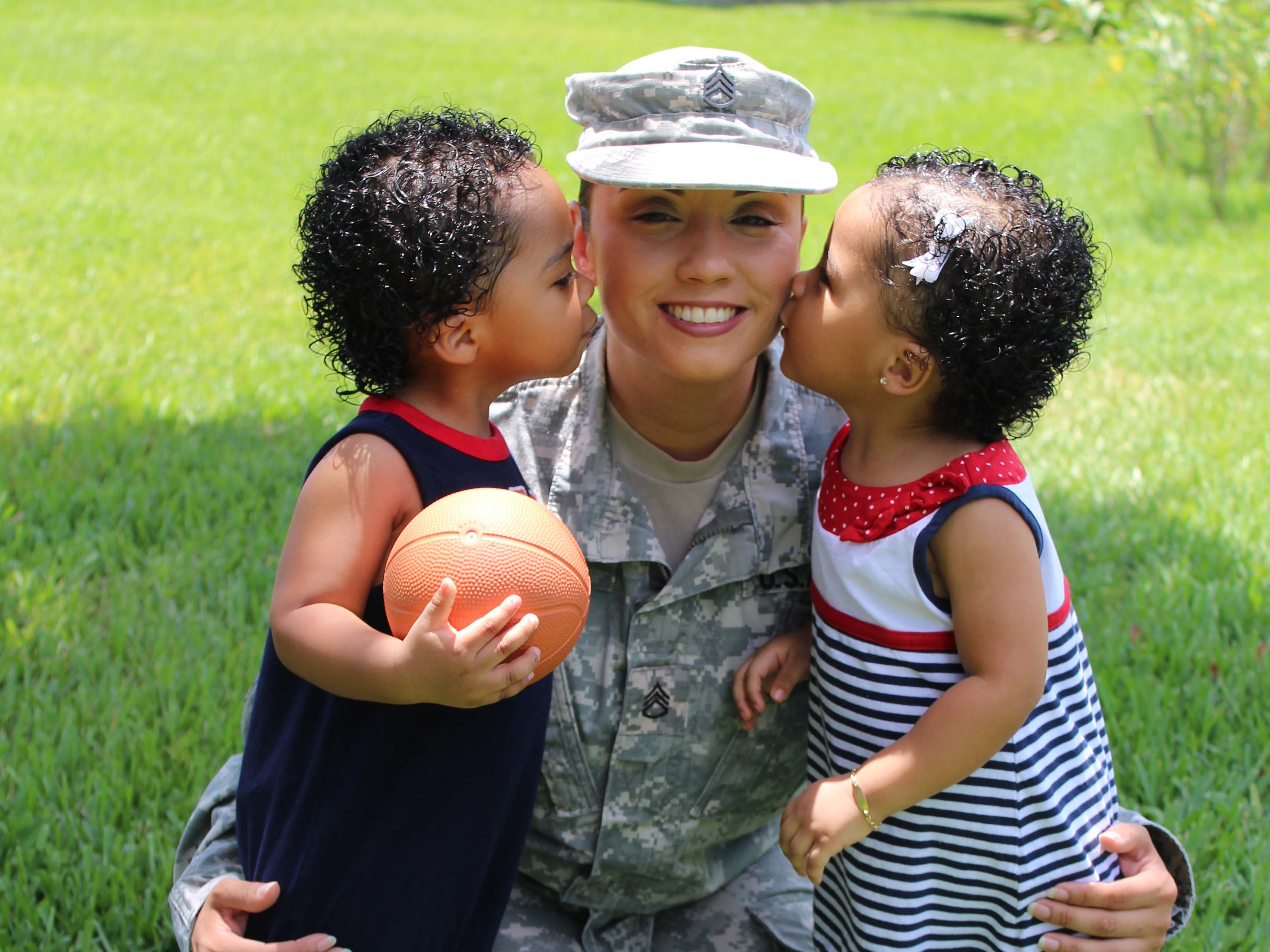Women of all walks of life feel a strong sense of patriotism, responsibility and desire to serve their country. Army veteran Elizabeth Jackson is one of those women.
“My son was three and a half months old when I deployed to Iraq,” she says. While most people’s response to Jackson’s statement is often amazement, it’s not out of the ordinary for this Central Floridian.
Jackson joined the Army when she was just 19 years old and went to basic training just weeks before the terrorist attacks of 9/11.
“I wanted to serve my country,” she says. “That I was a woman didn’t matter. The desire to serve was strong and goes beyond gender.”
According to the Pew Research Center, in 1973 only 2 percent of active duty U.S. military were women. As of 2011, 15 percent of today’s active duty military were women. Many point to changes in the structure of the U.S. military with helping to change those numbers, including the ability for women to become commanders and engage in combat roles.
Keeping Her Commitment
In the course of her four years as a soldier, Jackson learned to shoot, trained hard and selected a skill to learn. She chose truck driving as her advanced individual training. After that she did what plenty of soldiers do: got married and had a family.
In November of 2002, she gave birth to her son Christopher. Shortly after she was separated from her husband, and weeks after that, she learned her unit would be deployed to Iraq.
At the time, Army regulations deemed new mothers undeployable until four months after giving birth. That has since changed to six months, and there are no limits to when new fathers can be deployed. Jackson asked for a waiver for deferment so she could be deemed deployable just 14 weeks after giving birth. She talks frankly about her decision to do be deployed.
“I raised my right hand along side everyone else in my unit,” she says. “I said I would defend the Constitution against all enemies, foreign and domestic. There were no exemptions placed on that. It’s just part of my value system that I do what I say I’m going to do.”
Jackson admits that she knows some mothers (and fathers for that matter) may see her decision to stick to her commitment as drastic or extreme. In response, she says all men and women have the ability to choose what is right for their families.
“I don’t judge any mother who follows Army regulations to not be deployable until six months after having a child,” she says. “I had plenty of family support for my son. I had a strong conviction that he and I would be OK if I deployed.”
Jackson served in Iraq approximately nine months and in the Army for a total of four years. She came back to the U.S. shortly before her son’s first birthday and not long after that her enlistment ended.
Extension of Family
Army Staff Sergeant Marilyn Lopera of Lake Nona heeded the call to serve her country, too. She joined when she was just 17 years old with her parents’ permission. Her decision to join the military was due in part to the good example her Uncle Jimmy gave her when it came to what a successful solider looked and acted like.
“He would tell stories about being part of his unit where it just seemed to me they had such camaraderie and commitment to each other,” Lopera says. “I’m part of a close-knit family, so it seemed like being in the Army was an extension of being a part of a big family in some ways.”
As a reservist, Lopera knew she could be deployed after enlisting and indeed she was. She deployed to Kuwait in 2003 and admits it was a little scary.
Lopera wasn’t a mom at the time, but she did serve alongside a few moms in her unit. “I could tell they missed their kids,” she says. “But it seemed like they leaned on each other a lot to get through it. We all leaned on each other. That’s the part of being in the Army that was important to me. We were in this together.”
During Jackson’s deployment, she says there weren’t many new moms in her unit – most had teens – but she did find comfort with other military mothers. Also, she carried her son’s receiving blanket with her while she was deployed, a secret she only now talks about some 13 years later.
“It just made me feel close to him,” Jackson says. “Spending my first Mother’s Day in Iraq away from my son was tough, but I got through it by doing my job.”
Soldier Support
Lopera became a mom two years ago with the birth of her twins Sebastian and Savannah. She is still in the National Guard and works at the armory near the Orlando International Airport. Her job, as part of the 164th Air Defense Artillery Unit, is in the human resources department.
Her husband is a long-term solider as well, and they have been married 10 years this year. She has not been deployed since becoming a mom. Since she intends to stay in the Army, as does her husband, there is a possibility that either of them could be deployed. Her husband has been deployed twice during their marriage, but not since having their children.
“I would miss my kids tremendously, but I know without a doubt that they would be OK,” Lopera says.
For married military couples with children it is possible for both to be deployed at the same time. Lopera points out that all military personnel get some notice before they are deployed and that she has a strong network of friends and family to help her and her family through that, should it happen for them.
Both Lopera and Jackson say that they think being a mom in the military comes with access to plenty of support.
“There are lots of programs in place to help families, not just moms, but there’s also specific help for single mothers or dual military families and every thing in between,” Jackson, who is now a civilian social worker and outreach specialist for the Orlando Vet Center, says.
For the Kids
Jackson, who is now remarried to an Army vet and is a stepmom to two boys, says her family is proud of her military service, especially her son Christopher.
“He gets really excited to tell people his mom was a soldier,” Jackson says.
According to Lopera, even though her children are still very young, she hopes her service is something they can be proud of when they get older.
“I just want to be a good example for them,” she says. “I want them to see me as a strong, responsible woman who cares about others, cares about her family and [cares about] her country.”






Comments